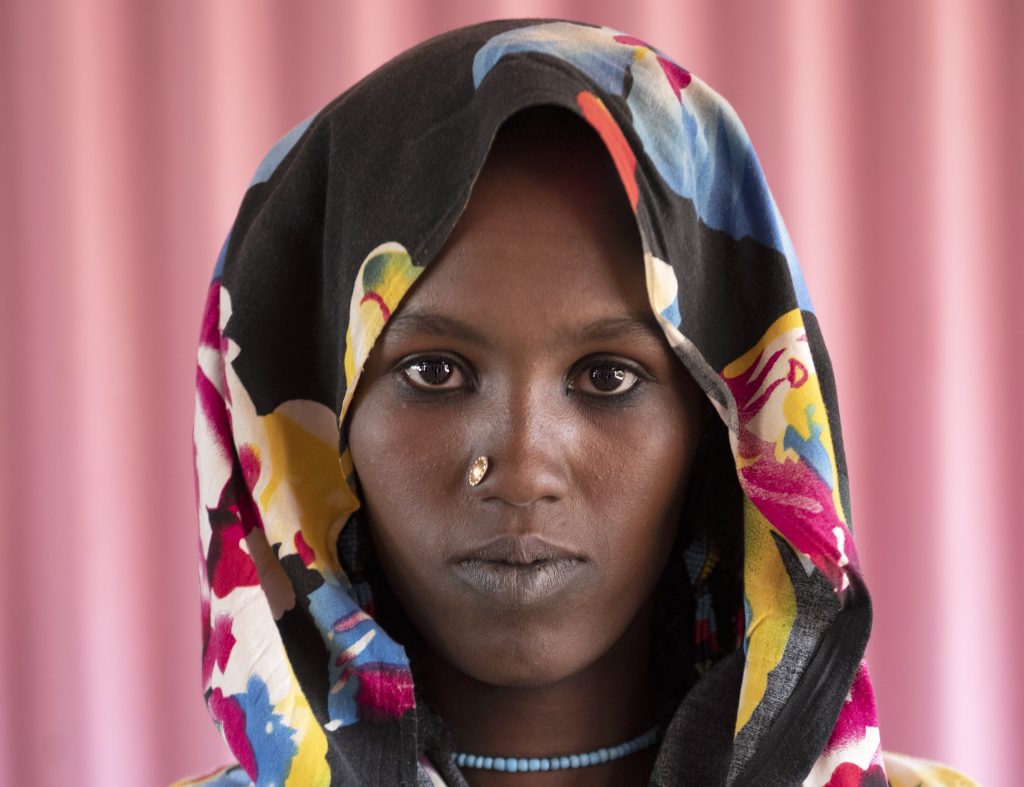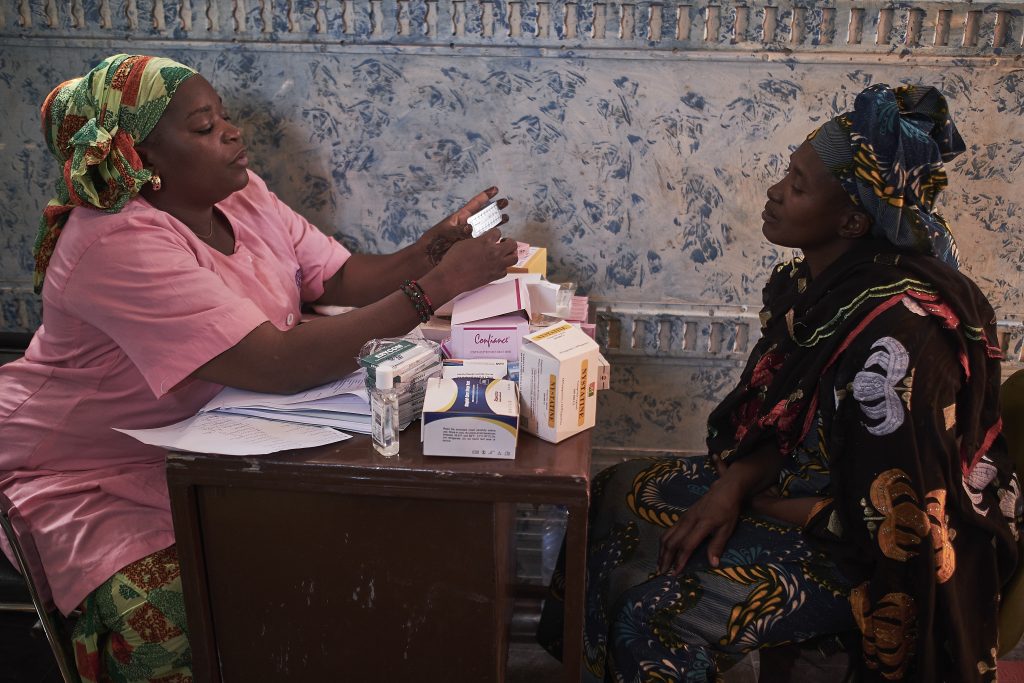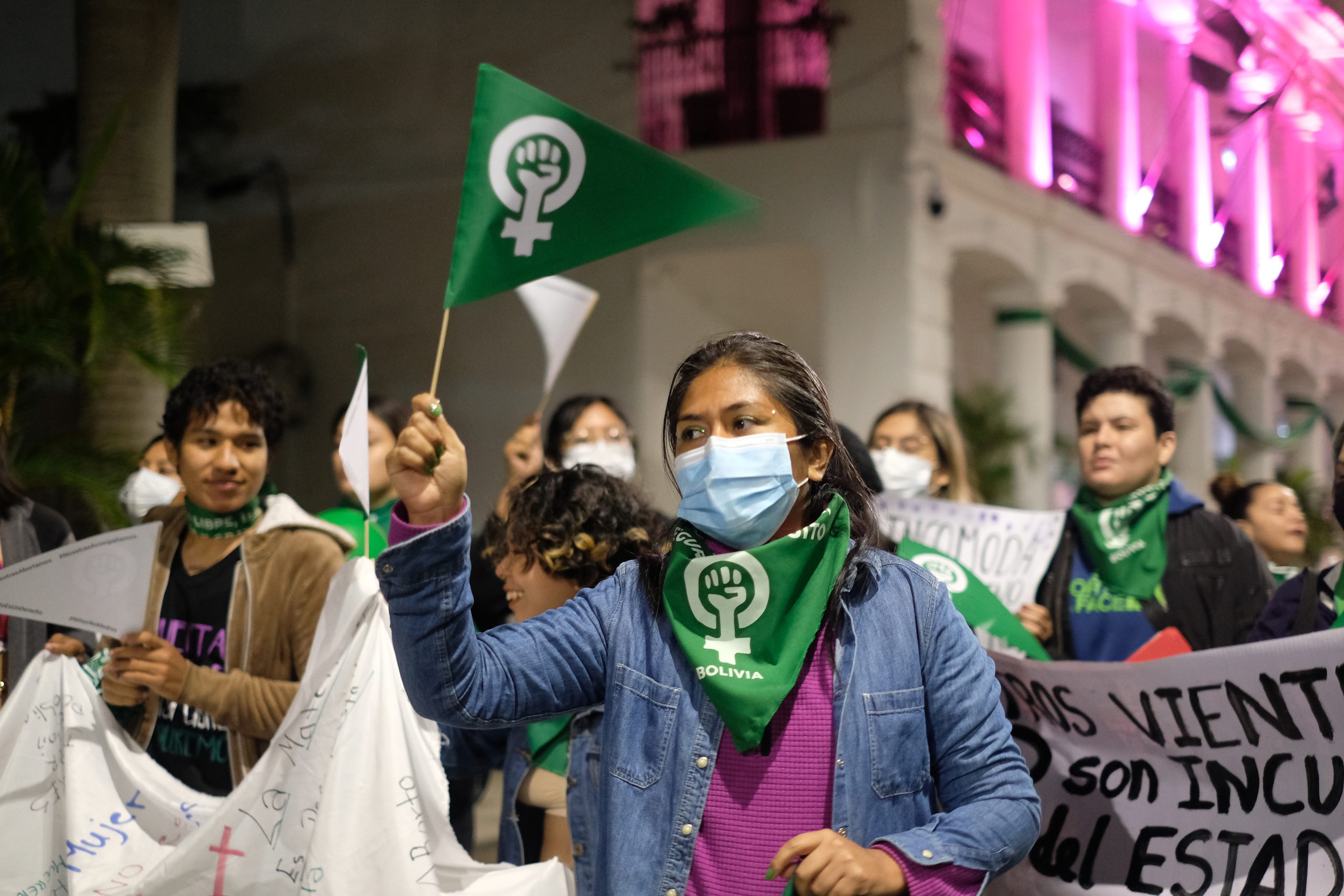The International Planned Parenthood Federation (IPPF) is concerned by the grave implications that a second Trump Presidency – with full backing from a Republican majority in Congress – poses to health and human rights in the U.S. and across the world. Anticipated rollbacks on reproductive rights, gender and sexuality, outlined within the Heritage Foundation’s Project 2025 agenda, risk the undermining and reversal of hard-won gains for the rights of women, LGBTQI+ people and marginalised communities worldwide.
This election saw a ‘red sweep’ take place across the U.S., with Trump securing the Presidency and the Republican Party winning majorities in both the House and Senate. This veritable ‘triple-threat’ arrangement will bring with it significant ramifications for the fate of global health, sexual and reproductive health and rights and human rights worldwide, with the potential to change the face of democracy as we know it.
When compared to 2016, this time around there will likely be few in positions of power to push back against detrimental and extremist policies within the administration itself. Many of the more moderate political appointees and Whitehouse staffers under Trump’s first term are now largely being replaced by far-right MAGA loyalists. At the same time, the Republican Party has also shifted in its position on abortion and contraception since 2016 – now aligning more closely with Trump’s views.
Likewise, the U.S. Supreme Court is now held up by a conservative majority, following the appointment of justices Neil Gorsuch, Brett Kavanaugh, and Amy Coney Barrett during President Trump’s first term. The implications of this are already being felt, resulting in what has been described as “fundamental shifts in the nation’s system of checks and balances among the three branches of government and the ability…to ensure the president complies with the law”. The combination of these factors is unprecedented. With reduced power from the Democrats in Congress, this will aid the Trump Administration to enact their hardline legislative and policy agenda.
Domestically in the U.S., Trump, with backing from a Republican majority in Congress, is expected to scale up efforts to enact a federal abortion ban and re-instate the domestic gag rule. This gag rule prohibits providers under the federally funded ‘Title X’ family planning program from referring patients for abortion care and placing extensive requirements on providers to perform abortion care. IPPF’s U.S. Member Association, Planned Parenthood Federation of America (PPFA), are also set to face further attacks. The Trump Administration will likely encourage U.S. states to render Planned Parenthood’s clinics ineligible to receive reimbursements through Medicaid and other publicly funded programs for the provision of contraception, STI care, and cancer screenings. In the face of these challenges, PPFA along with its international arm, Planned Parenthood Global, remain unwavering in their mission to protect and expand sexual and reproductive health and rights, and will play a critical role in opposing this harmful agenda at every step of the way.
On the global stage, Trump’s win takes place within an increasingly restrictive legislative and policy environment for sexual and reproductive rights around the world, furthered by the growing influence of a global anti-rights movement to which Trump and his allies are closely tied. Comprising a diverse range of actors, including politically conservative think tanks, lobbyists, along with authoritarian and conservative governments, this movement seeks to erode human rights through highly coordinated and well-resourced efforts in national and global arenas, threatening to reverse decades of progress.

With this context in mind, IPPF anticipates the following global impacts as we move into 2025:
The Global Gag Rule (GGR) has been implemented by each Republican administration since 1984 and rescinded by Democrats. Under the original GGR, foreign NGOs receiving U.S. global health assistance are prohibited from providing legal abortion services, counselling and referrals or participating in advocacy efforts for abortion law reform — even if resourced by non-U.S. funds. The implications of this are profound, with findings showing that the most recent re-instatement of the GGR under Trump between 2017-2021 resulted in an estimated 100,000 maternal and child deaths, and approximately 360,000 new HIV infections around the world.
The U.S. is the world’s largest global contributor to official development assistance, pledging USD $63 billion in FY24 alone, including US $12.3 billion in health and US $16.4 billion in humanitarian funding over 180 countries. However, this will shift should Project 2025 be enacted, through significant expansion of the GGR.
An expanded GGR will no longer just impact foreign NGOs, but instead also apply these conditions to U.S. NGOs, UN agencies, and other multilaterals, such as GAVI, the Global Fund to Fight AIDS, Tuberculosis and Malaria and the Global Financing Facility (GFF). As per the Heritage Foundation’s Project 2025’s ‘Mandate for Leadership’, humanitarian aid and bilateral aid to partner governments may also be affected if this proposal is supported by the Trump Administration. With Republicans holding majorities in both the legislative and executive branches of government, there is a significant risk that the GGR may be codified into U.S. federal law.
IPPF anticipates it will lose US $61 million in funding as a result of the GGR being reinstated. Abruptly cutting this work short will have tragic consequences for the communities relying on these services. Beyond direct impacts to funding, the GGR has a ripple effect on provision of care, advocacy and global policy attitudes, instilling fear in organisations and causing them to self-censor. Worry over potentially losing U.S. funding or damaging relationships with donors means that they may over-restrict their activities, or disengage from partnerships, to ensure compliance. The impact of this will be widespread, felt not only at organisational and community-level, but across entire movements.
The United Nations Population Fund (UNFPA) is familiar with funding cuts by Republican administrations. Every Republican president since Ronald Reagan has discontinued funding to UNFPA, only to be restored by subsequent Democrat administrations. The U.S. Government’s support to the WHO has also long been questioned by Trump and his allies, with his presidency marking significant threat to progressing global agreements such as the WHO Pandemic Treaty, and global health cooperation more broadly.
Cutting support to these agencies will have major implications worldwide, including for long-standing programs and service provision for family planning, comprehensive sexuality education, maternal and child health care, and HIV/AIDs programming, to name a few. In 2020-21, US funding to the WHO amounted to US $700 million.
Under the Biden Harris Administration, UNFPA currently receive over U.S. $30 million from the U.S. in core contributions, and over U.S. $130 million for humanitarian work (accounting for roughly half of all funding for UNFPA’s humanitarian work). If the Trump Administration block funding to UNFPA, there will be major implications for UNFPA’s operational capacity, particularly their humanitarian efforts in crisis settings worldwide. This would also impact the many IPPF Member Associations who receive sub-grants from UNFPA for humanitarian delivery.
Given the U.S. Agency for International Development (USAID) is the other major sexual and reproductive health commodity procurer complementing the UNFPA, significant impacts are anticipated for future commodity supplies worldwide. This would in turn have negative implications for IPPF Member Associations who rely on these commodities to deliver SRH services.
IPPF and its partners fully anticipate the incoming Trump Administration to launch a major effort to promote the Geneva Consensus Declaration in the UN. Originally developed under Trump’s first term with the help of former administration official and now President and CEO of the Institute for Women’s Health, Valerie Huber, the Geneva Consensus Declaration is thinly veiled tool that is being used to roll back abortion rights and undermine LGBTQI+ rights in countries who sign on, under the guise of promoting women’s health.
So far, 39 countries have signed on, with signals that Argentina may also sign on in the wake of Trump’s election win. Trump has openly stated he intends for the U.S. to rejoin the Geneva Consensus Declaration to “reject the globalist claim of an international right to abortion”. Anti-rights actors are capitalizing on this moment. The Heritage Foundation’s Project 2025 blueprint has suggested that all U.S. foreign policy engagement should be aligned with the Geneva Consensus Declaration’s principles in relation to abortion and “the family”, including U.S. bilateral agreements with other governments.
The Trump Administration is also expected to withdraw from key multilateral settings including the World Bank, WHO and the UN Human Rights Council, taking a nationalist and isolationist stance which risks the dismantling of multilateral cooperation as it stands today.
Trump has pledged to withdraw the U.S. from the Paris Climate Agreement, and will also dramatically dismantle support for existing programming efforts, including the U.S. Environmental Protection Agency (EPA). This reflects the mandate set out in Project 2025, which calls upon the next Republican president to rescind all climate policies from U.S. foreign aid programs (specifically USAID’s Climate Strategy 2022–2030), also calling for the dismantling of USAID offices, programs and directives designed to advance the Paris Climate Agreement, and pushing for a reduction in funding for climate mitigation efforts through foreign aid in favour of promoting fossil fuels in global South countries.
The climate crisis disproportionately impacts women, girls and marginalised groups by increasing risk of numerous health and psychosocial issues, including for those related to sexual and reproductive health and rights. By falling short on commitments to halve emissions by 2030 and reducing support for climate action on the global stage, the Trump Administration’s policies will likely further contribute to and exacerbate existing, deep running inequalities between countries and among communities.
In recent years, we have witnessed large-scale attacks on the rights of LGBTQI+ communities, including in Uganda which signed one of the world’s harshest anti-LGBTQI+ laws in 2023. Under the Biden Administration, the U.S. committed to protecting these rights within foreign policy, releasing a standalone LGBTQI+ Inclusive Development Policy and appointing a special envoy for the human rights of LGBTQI+ persons, Jessica Stern. However, the Trump Administration is expected to largely curtail these efforts.
President Trump has historically taken an ultra-conservative, right-wing stance on LGBTQI+ rights. In his first presidency, he appointed anti-LGBTQI+ Judges at every level of the judicial system, including the Supreme Court, opposed an Equality Act that would provide explicit protections against discrimination for LGBTQI+ people, and has routinely referenced anti-LGBTQI+ rhetoric throughout his presidential campaigns. It is expected that his incoming administration will continue to take this hardline stance, potentially by enacting proposed policies outlined within Project 2025.
Indeed, the mandate calls for the incoming Secretary for the U.S. Department of Health and Human Services (which it proposes to rename as the U.S. Department of Life), to “reverse the Biden Administration’s focus on “‘LGBTQ+ equity,’ …encouraging marriage, work, motherhood, fatherhood, and nuclear families” and also suggests that a transgender identity is synonymous with “pornography”. In relation to foreign policy, it advocates for increased funding to select faith-based organisations globally, the promotion of heteronormative family structures within policy and foreign assistance programming, and calls upon the administration to end foreign diplomatic support and assistance for LGBTQI+ rights.
If any of these propositions are enacted by the Trump Administration as anticipated, this will be detrimental for LGBTQI+ people worldwide. It will likely result in pushback and rescinding of support for LGBTQI+ rights and protections globally and would embolden anti-LGBTQI+ actors to amplify their attacks.
The incoming Trump Administration is sparking widespread concerns over the future of U.S. support to global HIV/AIDs programming. The U.S. is the single largest donor to international HIV/AIDs efforts globally, largely contributed by the Global Equality Fund and the President’s Emergency Plan for AIDS Relief (PEPFAR) which has delivered approximately US $120 billion over 50 countries since its inception in 2003, credited with saving more than 25 million lives worldwide.
However, due to an increasingly partisan environment in U.S. Congress, and the mobilization of ultra-conservative actors such as the Heritage Foundation, PEPFAR has been under attack in recent years. The Trump Administration proposed substantial cuts to the programme during his first term, which were rejected by Congress at the time. However, controversy and pushback on PEPFAR in recent years saw it only granted further reauthorization for one year in 2024, marking a significant departure from the bipartisan support that the programme once held, having been historically re-authorized by Congress for five-year periods.
This short-term re-authorization undermines the ability for long-term planning and strategic action and sends a worrying message about the U.S. Government’s role in ending the HIV/AIDs epidemic globally. With PEPFAR due to come up for reauthorization in 2025 under a Republican majority in congress, it is anticipated that the Trump Administration may impose harmful rollbacks on support for HIV/AIDs programming in U.S. foreign assistance, potentially dismantling PEPFAR and halting lifesaving services for millions.
Under the Biden Harris Administration, the U.S. is the single largest government donor to the humanitarian aid architecture. U.S. support currently accounts for more than half of total funding to the United Nations Refugee Agency, UNHCR (57%). U.S. humanitarian assistance is critical for upholding access to sexual and reproductive health care in crisis settings. There are concerns that under the incoming Trump Administration, U.S. humanitarian assistance would be redistributed in accordance with ideological mandates. As mentioned above, the emphasis would be on supporting select faith-based groups who comply with the conditions of an expanded Global Gag Rule. This is based on what is set out in Project 2025 by former USAID Deputy Max Primorac – who served under Trump during his first term.
The incoming Trump Administration is expected to remove inclusive language within U.S. foreign policies and strategies, particularly in relation to gender and sexuality. Anti-gender rhetoric is evident throughout Project 2025, which promises to ‘delete’ all references to sexual orientation and gender identity (SOGI); diversity, equity and inclusion; and a host of other related terms (e.g. gender sensitive, gender diverse) from every federal rule, agency regulation, contract grant or legislation, and public platforms such official agency websites. Project 2025 also proposes to remove all references to abortion, reproductive health, sexual and reproductive rights, as well as “controversial” sexual education materials from USAID websites, agency publications, policies, contracts and grant agreements.
Furthermore, Project 2025 calls for the Trump Administration to “rescind President Biden’s 2022 Gender Policy and refocus it on Women, Children, and Families”. It also calls for amending the focus of USAID’s Office of Gender Equality and Women’s Empowerment to ‘traditional’ values, renaming it as the “Office of Women, Children, and Families”. Further, there is a suggestion to eliminate the posts of 180 gender advisors within USAID and its missions globally.

We will strengthen our efforts in the face of increasing threats to sexual and reproductive rights, human rights and democracy at large.
We will call out injustices where we see them and remain steadfast in our commitment to support the most marginalised and excluded, including those who will be impacted by the incoming Trump Administration’s foreign policy actions.

Photo credits: Banner image: Wara Vargas – First image: IPPF/Hannah Maule-ffinch/Sudan – Second image: IPPF/Xaume Olleros







